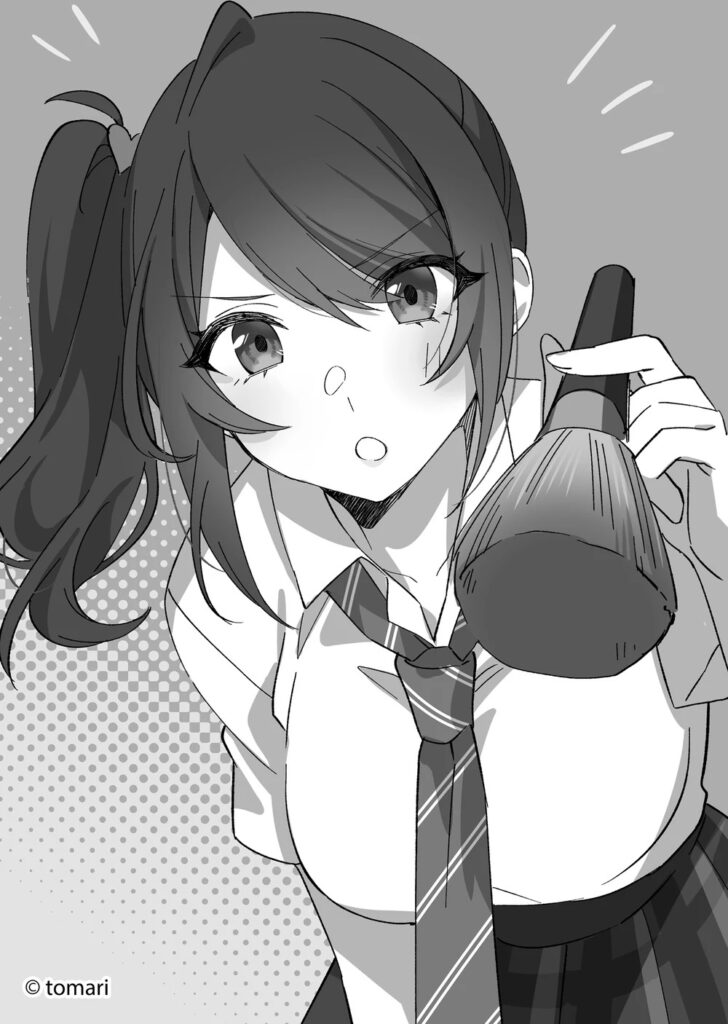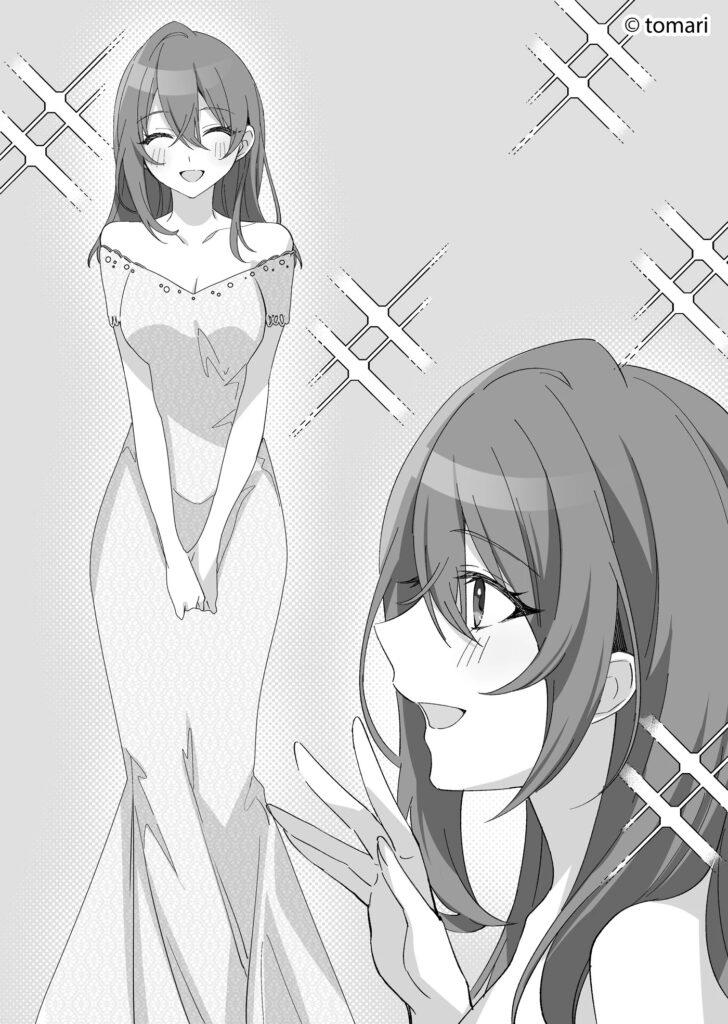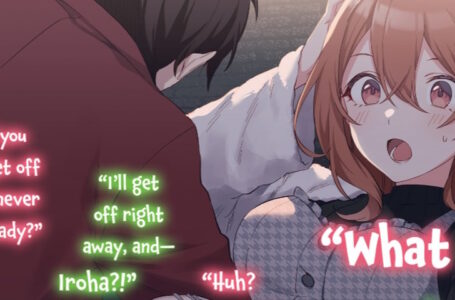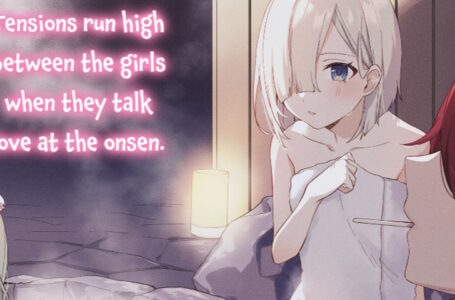Challenging the efficiency of gender norms in My Friend’s Little Sister Has It In For Me! volume 6
For one reason or another, after enjoying the fifth volume of My Friend’s Little Sister Has It In For Me! I ended up falling off the “reading regularly” wagon somewhat — not because I hadn’t been enjoying the experience, but simply because my own personal free time was going through one of those inevitable ebbs and flows where other things took priority over sitting down quietly with a good book.
I knew that the longer I left things, the harder it would be to go back to the series, regardless of how much I was enjoying it — but I decided that enough was enough; I liked these characters a lot, and I wanted to see how things ended up. And, I was rather pleased to discover that rather than jumping into volume 6 and feeling immediately confused after so long, I instead found myself slipping back into this endearing little world with ease, ready to enjoy more silly funtimes with this entertaining cast.

A quick recap for the sake of those who are joining this review series at this point: My Friend’s Little Sister Has It In For Me! (also known as Tomodachi no Imōto ga Ore ni Dake Uzai, or simply ImoUza for short) is a series of light novels by mikawaghost, featuring illustrations by tomari. At the time of writing, the series is nine volumes strong, with a manga adaptation kicking off in 2019 and an anime adaptation also on the way.
While the title may suggest that this is a simple (probably ecchi) light romantic comedy series, the truth is actually somewhat different. While there are definite romantic comedy tendencies — and a growing harem aspect as the series progresses — the main thrust of the story is, in fact, about the concept of stifled creativity, and how those with creative minds cannot always rely on being a situation where they are able to express themselves freely.
Protagonist Akiteru (Aki for short) is the producer of an independent game studio who have had a breakout hit with their mobile game Koyagi: When They Cry. As the sixth volume starts, the team are celebrating the fact that their game has had two million downloads — a big deal for a title mostly put together by high schoolers working under secret identities. But they also know that they can’t rest on their laurels; Aki is trying his best to secure the entire team a position at renowned game company Honeyplace Works, which just happens to be run by his uncle.
Oh, there’s a catch, though; Aki’s uncle is more than happy to consider taking on the entire “05th Floor Alliance”, as the group are called, but on one fairly major condition: Aki must pose as his daughter Mashiro’s fake boyfriend until the end of school, as a means of fending off unwanted harassment. But God help Aki if he actually becomes her boyfriend or fools around with any other girls on the side.
Naturally, just to complicate matters, it turns out that Mashiro has had genuine romantic feelings for Aki since they grew up together — and not only that, the relationship between Aki and the titular friend’s little sister Iroha has been blossoming over the course of the last few volumes also. Aki, being someone who once thought that interpersonal relationships were “inefficient”, is gradually starting to learn that enjoying his youth is just as important as keeping the 05th Floor Alliance working at maximum efficiency — but is finding himself increasingly confused as to what to do about the young women around him.

As volume 6 opens, one thing that Akiteru has solidified in his mind is his desire to find Iroha a genuine best friend. Iroha, you see, is someone who has always felt the need to hide her “real” face around everyone except Aki. At home, her strict mother does not allow her to enjoy any form of entertainment, which means that her top-secret role as the one-woman voice troupe responsible for all of the character voices in Koyagi has to remain absolutely confidential. And at school, her “perfect honour student” persona has made her popular and well-liked by staff and students alike.
Around Aki, though, she’s annoying. She likes to annoy the absolute piss out of Aki as often as possible, though it was clear from the moment we first met her back in the series’ first volume that it’s the sort of annoying ribbing that one can only do with one’s closest friends and confidants rather than anything malicious — and is often borderline lewd, as seen in a particularly memorable “stepping on” scene in this volume.
Aki initially being the only one who knows Iroha’s true identity as Koyagi’s voice acting “troupe” gives the pair of them a special relationship with one another; Aki is grateful for Iroha’s talents, while Iroha is grateful for Aki providing her an outlet through which she can truly express herself, even if she has to do so anonymously.
Aki is fine with this to a certain extent, but he also has concerns. As a student in the year above Iroha, he worries that when he graduates she’ll have no-one that she can truly be herself around, and believes that she will struggle in that situation. Consequently, he wishes for nothing more than to find her a friend of her own age that she can also be annoying with; someone with whom she can completely let her guard down and truly be herself. It’s not that Aki resents Iroha relying on him in this regard; it’s that he knows dependence can be dangerous.
Iroha, upon discovering Aki’s plan, is initially resistant. It’s unsurprising in a way; despite the best of intentions, it’s a bit patronising for someone to declare that they’re going to find a friend for you, because it assumes that you wouldn’t be able to do so yourself. Although kind-hearted at his core, it’s fair to say that Aki is, on the whole, a bit of a control freak — some might say this is an ideal trait for a producer — and doesn’t like it much when he doesn’t feel like he’s in complete control of a situation.
To that end, Aki can sometimes come across as being a bit manipulative. He’s entirely aware of this — or at least he has been over the course of the last few volumes, where he repeatedly describes himself as being a “piece of shit” for the way he strings both Iroha and Mashiro along — but he just can’t stop himself. He wants the best for the Alliance as a whole, and in wanting that he sometimes loses sight of exactly how that works for the individuals who make up part of the Alliance.

Aki hatches a drastic and absurd plan. With the school festival coming up, he plans to enter the King and Queen Nevermore contest that forms part of the celebrations. But he’s not entering on the King side of things; oh no. He plans to cross-dress, assisted ably by his new “normie” friend and social media addict Sasara — whom he just so happens to think would probably make a good friend for Iroha — and compete against the girls of the school using his accumulated knowledge of “what men really want”, as picked up from his time producing Koyagi and, indeed, his own tastes.
His long-term aim for the contest as a whole is to manipulate the situation so that Iroha finds herself in a position where she has to reveal her true self to the school, and Aki hopes that this will let her see that everyone accepts her, regardless of the “role” she happens to be playing at the time. Without spoiling the details of the situation, things don’t quite go according to plan, but they do sort of work out in a funny way — the one thing Aki didn’t count on is that Iroha is more than capable of being devious, too.
Volume 6 of My Friend’s Little Sister Has It In For Me! has a fairly absurd premise for the most part, then, but it’s an enjoyable read, with the school festival providing an excellent climax for this part of the narrative. The character Sasara being brought somewhat further into the limelight after her introduction in a previous volume is very welcome — and, indeed, it’s heartwarming to see that she ends up forming a solid friendship with Iroha completely independently of Aki’s interference.
There’s a lot of interesting stuff about gender going on in this particular volume. The most obvious is, of course, the cross-dressing sequence, and Aki’s assertion that he’s in the best possible place to win the Queen Nevermore contest because he knows what men want. But there are more subtle explorations of this theme throughout, too — perhaps most notably in the fact that most of Aki’s compatriots in the 05th Floor Alliance are immensely capable women, each with their own unique talents.

In fact, a regular point of anxiety for Aki is that he’s the one member of the Alliance that isn’t really “needed”, since he doesn’t value his own talent of bringing all these people together to work towards a common goal. In other words, despite his somewhat manipulative nature at times, he’s really the opposite of being an arrogant, overbearing, dominant male character. Rather, he respects and understands the people around him — though he also knows exactly how to use the things he knows about his comrades in order to get what he wants, or at least what he believes is best for the Alliance.
There are also some pleasing looks at how “femininity” can be represented in different forms throughout the volume — with several different ones coming from Iroha by herself, as she experiments with “playing” different characters from their social circle in an attempt to understand them better. It shows that there’s no one real definition of what being a “boy” or a “girl” means — and in many respects it doesn’t really matter all that much. All that really matters is the person you are on the inside, and the way you treat the people around you.
All in all, volume 6 of My Friend’s Little Sister Has it In for Me! felt like it was over in a bit of a flash — though I feel like this was more because I was kind of glued to the pages rather than the actual narrative being rushed. Things are definitely escalating in terms of the relationships between the core cast members — both in terms of their friendships with one another, and in how they feel about our hero Aki — so it’s going to be interesting to see how things end up if and when things reach a definitive conclusion.
For now, this continues to be a fun, light-hearted series with enjoyable characters, relatable themes and a cheeky sense of self-awareness when it comes to light novel tropes. It’s serious about the story it wants to tell, but it’s also happy to give the audience a knowing wink and acknowledge how ridiculous things are. And I think that, more than anything, is what keeps me reading.
My Friend’s Little Sister Has It In For Me! volume 6 is available in Kindle format now from Amazon, with a paperback version following in February. Alternative purchase options can be found on J-Novel Club’s website.
Join The Discussion
Rice Digital Discord
Rice Digital Twitter
Rice Digital Facebook
Or write us a letter for the Rice Digital Friday Letters Page by clicking here!
Disclosure: Some links in this article may be affiliate links, which means we may earn a small commission if you make a purchase after clicking on them. This is at no additional cost to you and helps support Rice Digital!
- Letter from the Editor: passing the torch - June 30, 2023
- Super Woden GP 2 is looking promising - June 30, 2023
- Inti Creates is making a 32 bit-style Love Live action platformer - June 26, 2023







